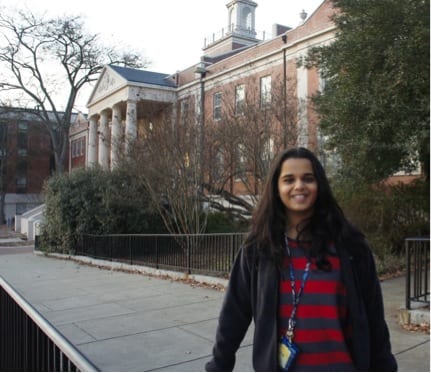My parents encouraged my sister and I to start reading from a very early age. I am pretty sure that as a child I read every book I owned about a hundred times. So imagine my joy when I saw a packed bookshelf at a friend's house that belonged to her four-year-old sister. Surprisingly, my friend informed me that her sister watched cartoons all day and nobody could convince her to pick up a book. “They're so boring!†she would cry.
It would seem that the interests of children have diverted away from books and onto TV shows, tablets and smartphones. The amount of time screentime in a child's day has been rapidly increasing. A 2010 study found that children between the ages of 8 and 18 spend about 7 hours per day in front of a screen.

It is still important that toddlers start spending time with books. For children, books hold vast treasures of learning experiences much greater than simply reading words. From pictures that help to develop their visual cognition, to stories that can encourage them to engage in problem solving, books aren't just language development tools.
The American Academy of Pediatrics suggests that parents start reading with their children from a very early age in their Literacy Promotion Statement. A new study showed that starting to read with children from an earlier age was related to increased semantic processing in their brains. That is, this study used fMRI for the first time and found an increase in brain activity in those areas of the brain that are related to mental imagery and extracting meaning.
Experience gained from parent–-child conversations during reading time is also very important. Neuroscience writer and mother, Laura Sanders, explains in an article in Science News how she reads to her one-year-old child. She emphasizes the need to talk to children as the story progresses, and to encourage them to think about different aspects of the story by asking simple questions.
In my preteen years, my TV viewing increased drastically with a corresponding drop in reading time. According to a 2006 study, an increase in television viewing is directly linked to a decrease in the frequency of book reading. Another study done on adolescents showed a positive relationship between increased TV viewing and shorter attention spans.
While both research and debate continue about what is beneficial for children and what isn't, books will never lose their touch.
Looking back, I realize that I preferred TV shows over books because they provided immediate gratification. I thought books took too much time. It is possible that children like my friend's sister may feel the same way, not just because they watch a lot of television, but also because they have access to so many other forms of entertainment like smartphones and tablets that give kids access to things like online games and short YouTube videos.
However, I don't deny that certain television programs can actually have a positive influence on children. My sister absolutely loved watching arts-and-crafts shows, for example, and tried her hand at the stuff she saw later on. Some games on tablets can actually be literacy apps and help children. Though very little research has been done on these new teaching and learning technologies, so far initial observations have led The American Academy of Pediatrics to recommend in a policy statement that parents with children under 2 years of age discourage screen media exposure.
While both research and debate continue about what is beneficial for children and what isn't, books will never lose their touch. Not only are books a great medium for learning, reading with your child is recommended as a very important parent-child bonding activity. I still remember reading books with my parents. We would slowly go through the pages and stop to talk about every picture and all the new words. In my opinion, every child deserves the opportunity to experience the joy of their first books in a complete manner.
About the Author
 Sunishka “Sonny†Thakur is an undergraduate sophomore at UGA majoring in genetics. Her passions include dance, science and reading. She is a member of First Book- UGA, an organization that works towards bringing age appropriate books to every child in Athens Clarke County via fundraising. Sunishka “Sonny†Thakur is an undergraduate sophomore at UGA majoring in genetics. Her passions include dance, science and reading. She is a member of First Book- UGA, an organization that works towards bringing age appropriate books to every child in Athens Clarke County via fundraising.More from Sunishka Thakur. |
About the Author
- athenssciencecafehttps://athensscienceobserver.com/author/athenssciencecafe/April 17, 2020
- athenssciencecafehttps://athensscienceobserver.com/author/athenssciencecafe/April 12, 2020
- athenssciencecafehttps://athensscienceobserver.com/author/athenssciencecafe/April 3, 2020
- athenssciencecafehttps://athensscienceobserver.com/author/athenssciencecafe/March 30, 2020







